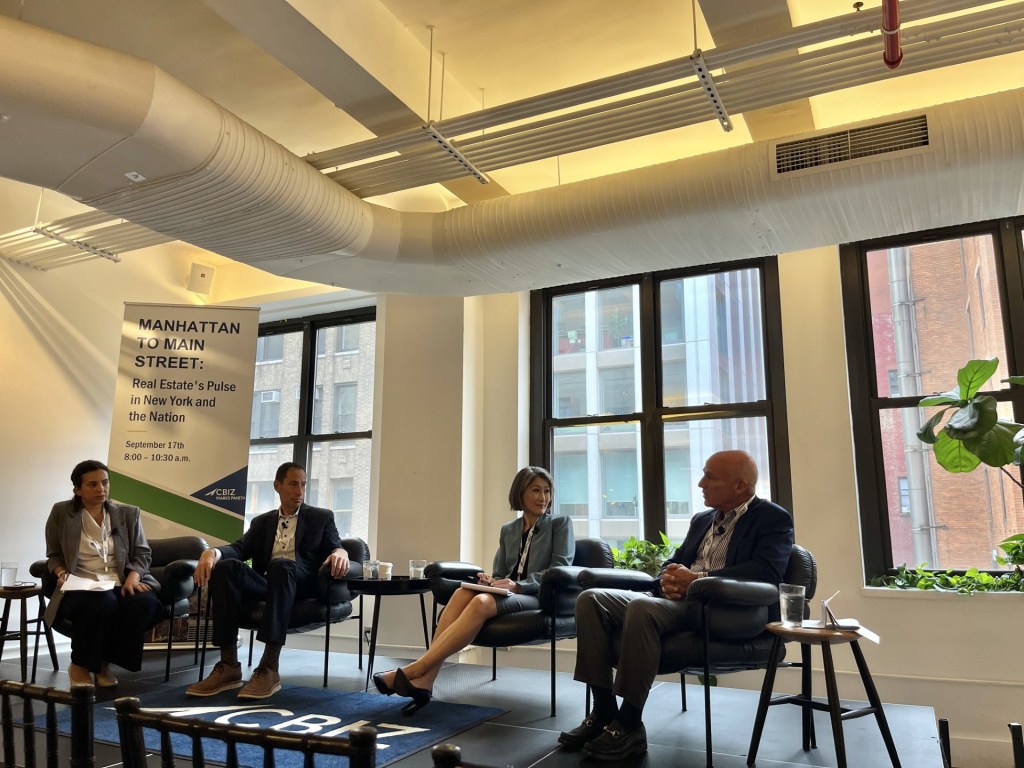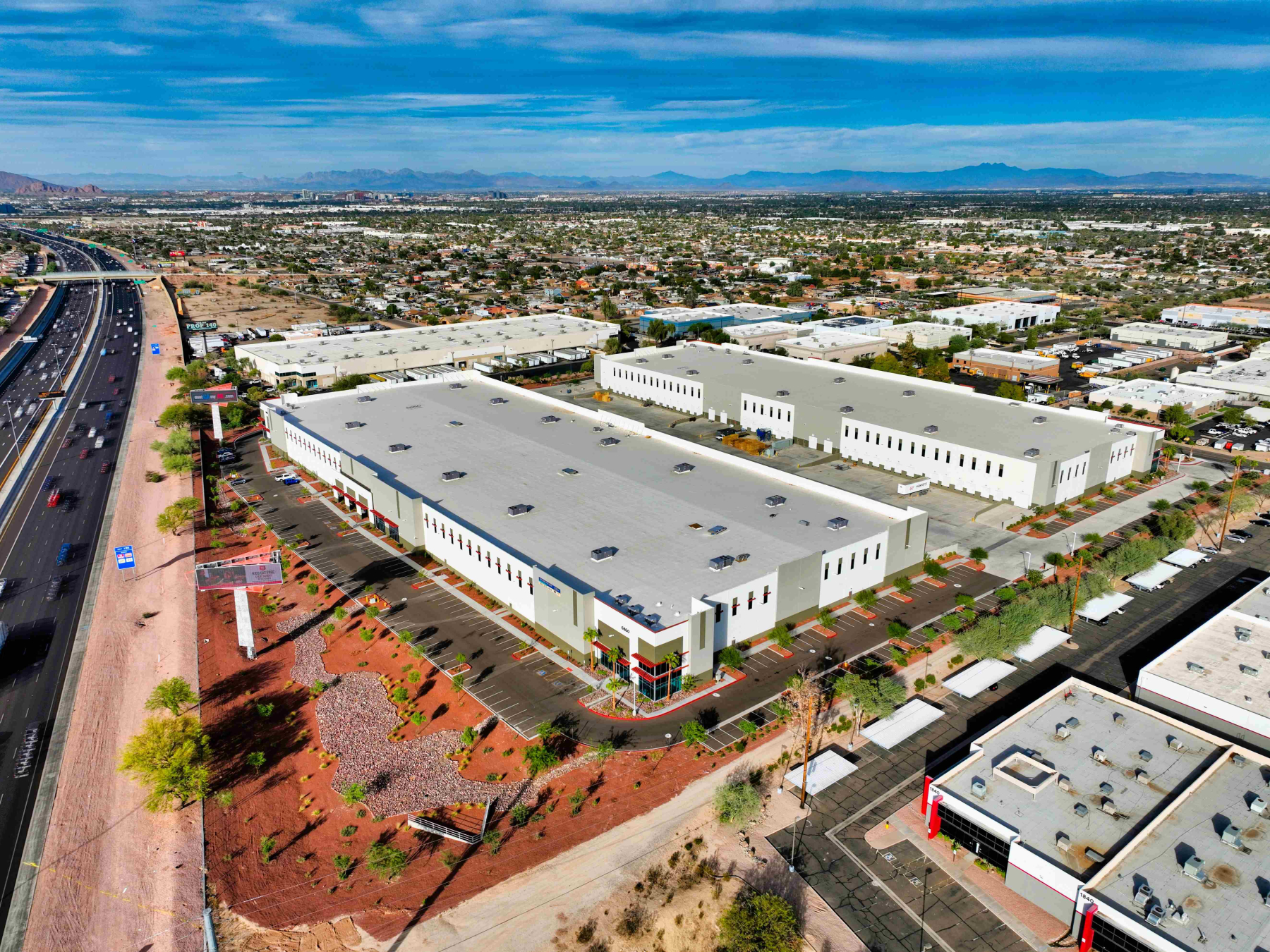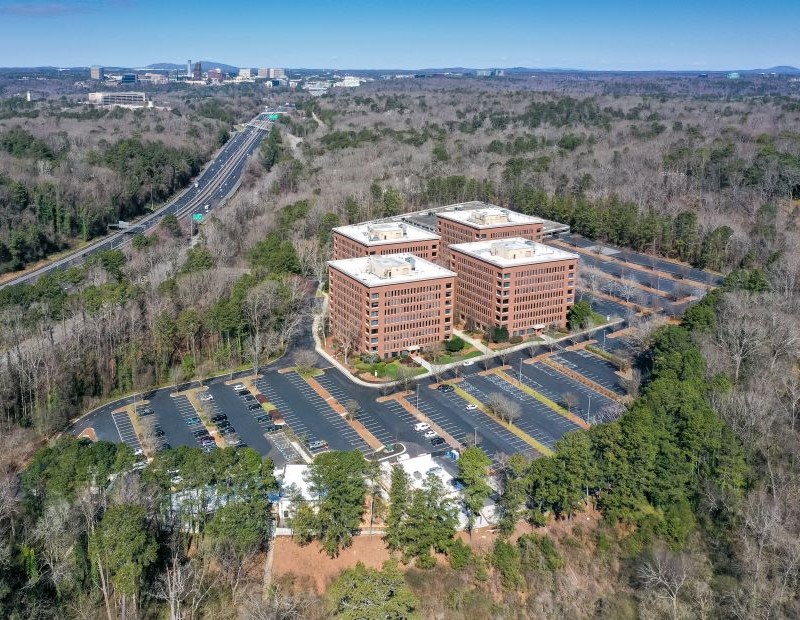NYC Executives Stay Sober-Minded on Eve of Expected Rate Cut
Some challenges remain sticky for both investors and developers.

Ahead of the Federal Open Markets Committee’s pivotal meeting this week, a panel of New York City-based owners and investors in office and retail appeared to be optimistic, yet realistic in assessing their challenges.
At a Sept. 17 discussion, hosted by CBIZ Marks Paneth and called ‘Manhattan to Main Street: Real Estate’s Pulse in New York and the Nation,’ the firm’s own CIO, as well as the CEOs of Rosen Equities and GFP Real Estate, shared thoughts on affairs both local and national. Discussion ranged from sustainability-focused legislation to the viability of office-to-residential conversions.
The economy: Wins and woes
While the Federal Reserve’s imminent interest rate cut is a welcome development, more long-term financing and investment strategies call for level heads. For starters, with a single rate cut, the funds rate will remain at its highest in more than two decades, all the while inflation, though considerably improved, is still above the Fed’s target of 2 percent.
“It is going to be higher, which will keep rates higher,” predicted Anna Rathbun, CBIZ’s CIO. “If you’re an investor, it will not make or break anything, but they are starting a cycle.”
Following a rate cut, both bond ratings and loan maturities are of interest, particularly in the CMBS space, of which $2.2 trillion will expire by 2028. “In terms of stability, bonds are going to be re-rated and potentially written down in certain portfolios,” Rathbun predicted. The result? “A bifurcation of (assets) that are sensitive to them and those that are not.”
READ ALSO: CPE Asks: What Makes a Distressed Office Property a Good Investment?
GFP Real Estate, which owns and operates office properties around New York City, in turn sees any rate relief as doing more for sentiments than it will for high capital costs and cap rates.
“It’s not about what rates are today, but (it’s) that forward curve, and what they are perceived to be,” said Brian Steinwurtzel, GFP’s co-CEO & principal. “We need to execute loans not in this moment, but in three, four, five or seven years.”
The good news? Institutional investors are eagerly anticipating a more certain market. “(There’s) a lot of dry powder waiting for those prices to drop,” according to Rathbun.
Goings-on around town
Investing in and operating Manhattan office properties that are not Hudson Yards or One Vanderbilt remains a risky proposition, but converting obsolete stock is still a promising—if at times difficult to sell—alternative.
“If you buy them cheap enough, you can do almost anything to a building,” reasoned David Koeppel, CEO of Rosen Equities. Still, residential conversions, even for the GFP-owned Flatiron building, have their limitations, particularly where project costs and aesthetics are concerned. As an example, “we can’t economically change the fenestration,” Koeppel said.
Koeppel had the same sentiments for the Big Apple’s ESG compliance laws. “Local laws 97, 88, 132 and 134 are all well-intentioned, but the owners of the buildings don’t use the majority of electricity,” Koeppel noted. In fact, these regulations are a direct discrepancy with the city mulling a mandate for indoor temperatures of residential buildings to not exceed 78 degrees, according to The Real Deal.
One area that panelists saw particularly sticky was the ubiquity of hybrid work, as employees become more enthusiastic about working in-person. “We will reach an equilibrium where working from home is seen as a luxury,” Rathbun weighed in.







You must be logged in to post a comment.